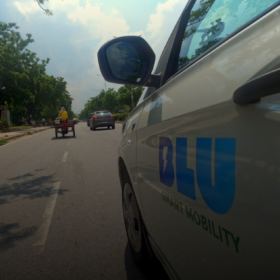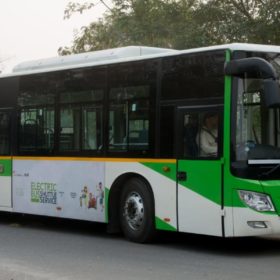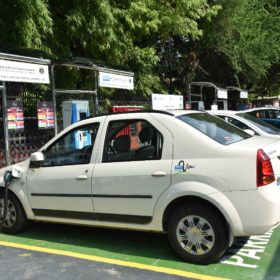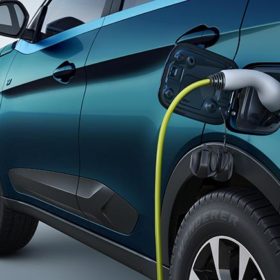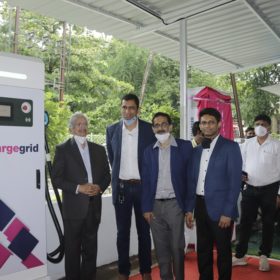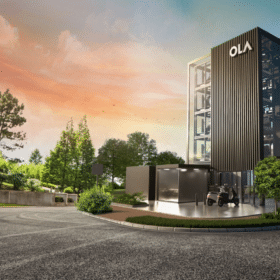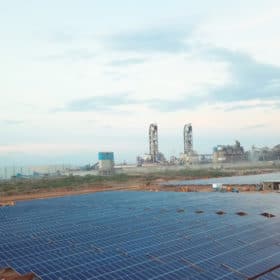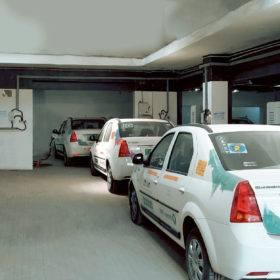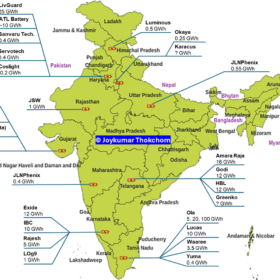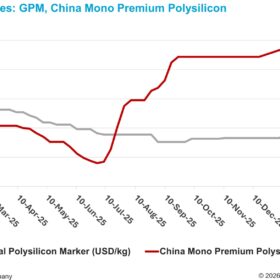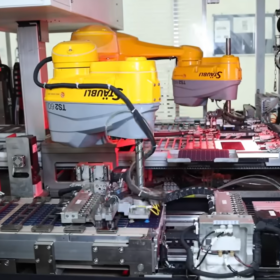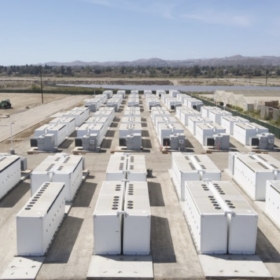Green mobility: IREDA launches scheme to finance battery storage, green hydrogen and fuel cell technologies
The State-controlled renewable energy and energy efficiency lender has launched a scheme to finance new and emerging technologies that promote and increase the usage of renewable energy in the transport sector.
Hyderabad startup plans EV chargers at 4,000+ locations by 2025
SmartChargEV plans to set up electric vehicle charging facilities at 4,000+ locations in all the States and union territories of India by 2025, and 23,000+ locations by 2031.
New solar-powered EV charging station opened at Delhi-Chandigarh highway
The solar-powered EV charging station at Karna Lake Resort, Karnal, is one of the 20 such stations set up by Bharat Heavy Electricals Limited (BHEL) along the Delhi-Chandigarh highway. It is equipped with AC001 (3×3.3kW), DC001 (15kW), and 72kW (50kW DC+22kW AC) chargers to charge all types of electric cars plying currently in the country.
EverSource-backed GreenCell to deploy 3,250 electric buses in three years
The company will initially launch 750 electric buses across key intercity and inter-state transit routes in Southern and Western India. To support the e-bus rollout, it is also building a captive charging infrastructure network across highways with 600 DC chargers of 180/240 kW capacity rating.
CESL, HPCL sign agreement on EV charging infrastructure
Convergence Energy Services limited, an arm of Energy Efficiency Services Limited (EESL), will set up electric vehicle charging points at Hindustan Petroleum Corporation Limited outlets in major cities including Mumbai, Delhi, Bengaluru, Hyderabad, Chennai, Kolkata, and Pune. The two partners are also identifying major highways across India where adequate charging infrastructure can be installed.
Tata Power to set up EV charging stations at HPCL petrol pump stations
Tata Power owns an expansive network of over 500 public electric vehicle chargers in 100+ cities across India. Partnering with HPCL allows it to further expand its base in line with the Indian government’s National Electric Mobility Mission Plan to promote electric mobility.
Magenta opens India’s largest public EV charging station
The Magenta electric vehicle charging station in Mumbai has 21 AC/DC chargers, including four DC chargers of 15-50 kW capacity and 17 AC chargers of 3.5-7.5 kW capacity.
Ola to provide 100,000 charging points for electric two-wheelers
Ola has announced it will set up a Hypercharger Network for its electric two-wheeler customers. The company claims the charging network would be the world’s largest and densest, spread over 400 cities with more than 100,000 charging points.
Fourth Partner and coal firm Indika Energy launch joint solar venture in Indonesia
The joint venture company, Empat Mitra Indika Tenaga Surya (EMITS), will provide onsite and offsite solar, battery storage and EV charging infrastructure solutions to Indonesia’s commercial and industrial sector. It expands Fourth Partner Energy’s footprint in South-east Asia while taking Indika Energy a step closer towards meeting its commitment to increase revenues from the non-coal segment by 50% by 2025.
Sterling and Wilson partners Enel X to enter EV charging infrastructure
Under the joint venture, Sterling and Wilson will provide end-to-end services for electric vehicle charging stations across India.
